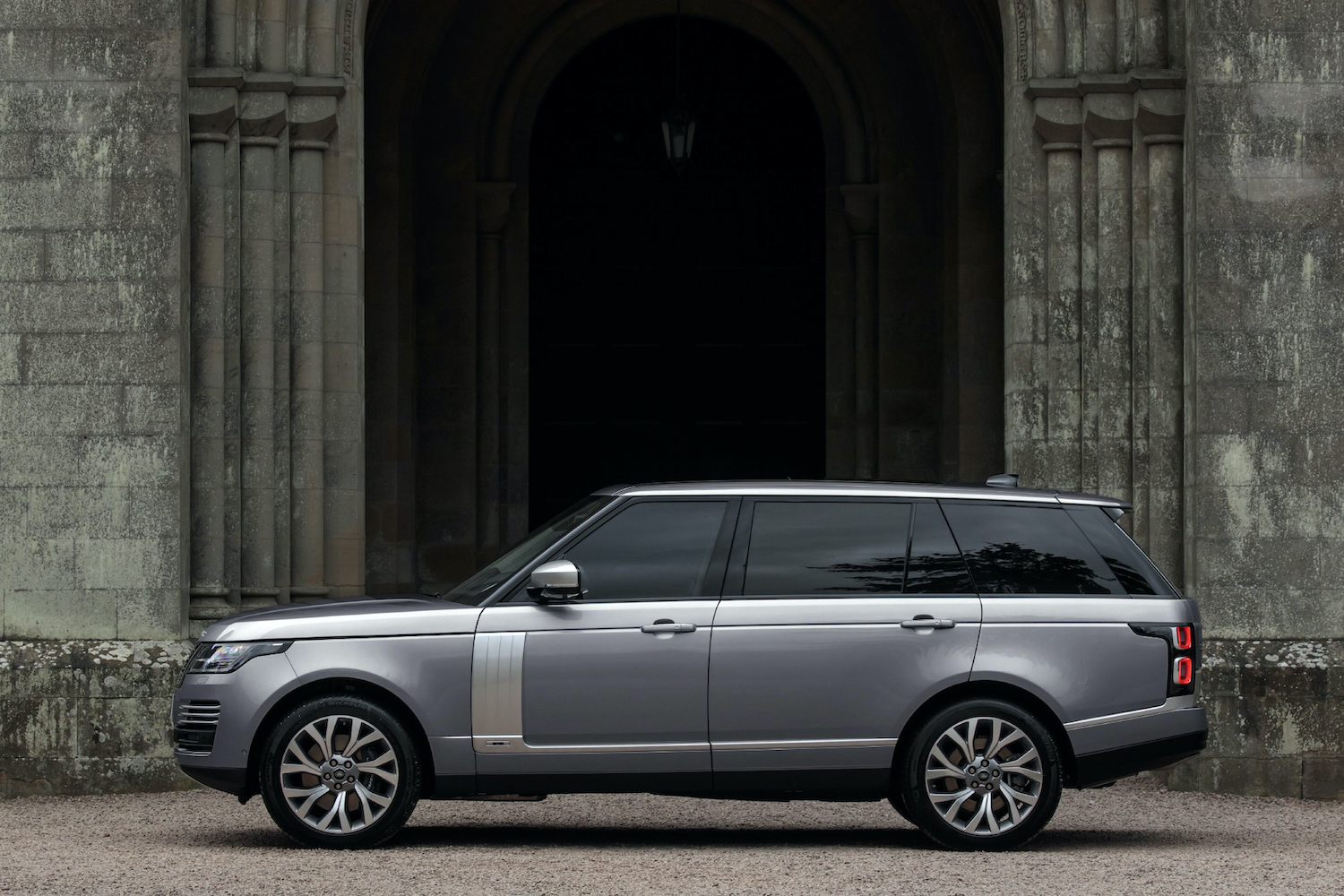
Aside from its design, the Range Rover’s greatest asset lies in its bandwidth of performance. On road, it’s an S-Class with four-wheel drive. Off road it’s a Wrangler Rubicon. Few other SUVs are as versatile without compromise, and that earns it a 9 out of 10.
Under the hood, things start off with a 3.0-liter supercharged V-6 with 355 or 395 horsepower, depending on trim. Torque is the same across the board at 332 pound-feet of torque. For a truck weighing nearly two-and-a-half tons, this supercharged V-6 moves the Range Rover with authority.
The turbodiesel V-6 also displaces 3.0 liters; it’s rated at 254 hp but the torque measures out to a stomping 443 lb-ft. That’s enough grunt to move the Range Rover to 60 mph from a standstill in 7.5 seconds and let it hit a top speed of 130 mph. These numbers nearly match those of the gas V-6—but the gas engine has no hope of matching the diesel’s excellent fuel economy.
The newest powertrain to join the fray is a gas-electric hybrid. This engine mates a 2.0-liter turbo-4 to a 114-hp electric motor that sips its juice from a 13.1-kwh lithium-ion battery. The combo is good for 398 total hp—a good bit more than the 2.0-liter normally makes when it’s not augmented by electricity. That electron boost also gives it a 6.4-second 0-60 mph time, a good showing for a heavy hybrid.
Of course, the best performance is found in the most audacious of the engine choices: the 5.0-liter V-8 used in the top trims. This supercharged engine checks in at 518 hp and 461 lb-ft of torque, which allows sub-five-second 0-60 mph sprints. Upgrade to the SVAutobiography models and power rises to 557 hp and 516 lb-ft, but mysteriously enough the 0-60 mph time doesn’t change.
Driving impressions—on-road and off-road
For such a big vehicle, the Range Rover is grippy, tenacious, and has a steering rack that’s filled with precise feedback—it’s hard to call it fun, but it is certainly more rewarding to pilot than something like a Tahoe.
The air suspension cushions things nicely; we’ll say again how the Range Rover rides like a luxury sedan. It quells any unwanted harshness from the broken pavement below. It can adjust ride height up to 10.2 inches up front and more than a foot in the back.
You’ll be happy to have that kind of suspension travel when you take the Rover into the back country. The variety of off-road modes—up to six, when you buy the right options—calibrates the throttle, steering, suspension, and more for a particular terrain. Helpful aids like a trail-speed cruise control and hill descent control are on the options sheet as well.
Buy all the right equipment and the Range Rover will tackle steep grades and impossible-looking terrain. It will also ford nearly three feet of water—even the hybrid model. An optional wade-sensing feature can alert drivers when they’re getting close to that limit, but we can’t imagine the usual clientele will ever need it.
Review continues below



